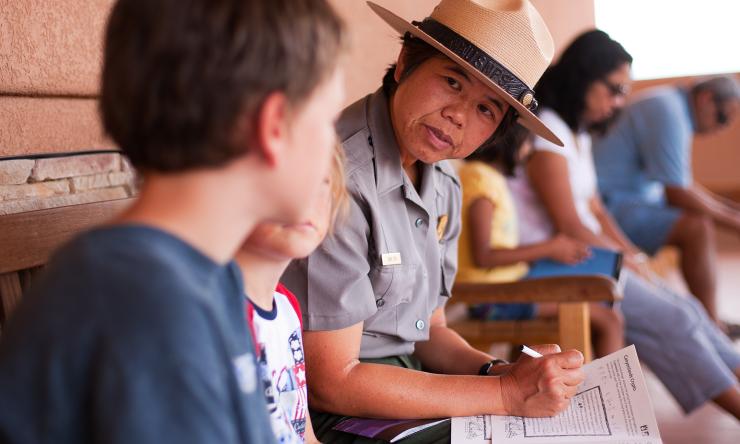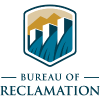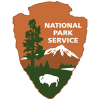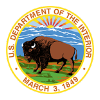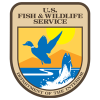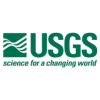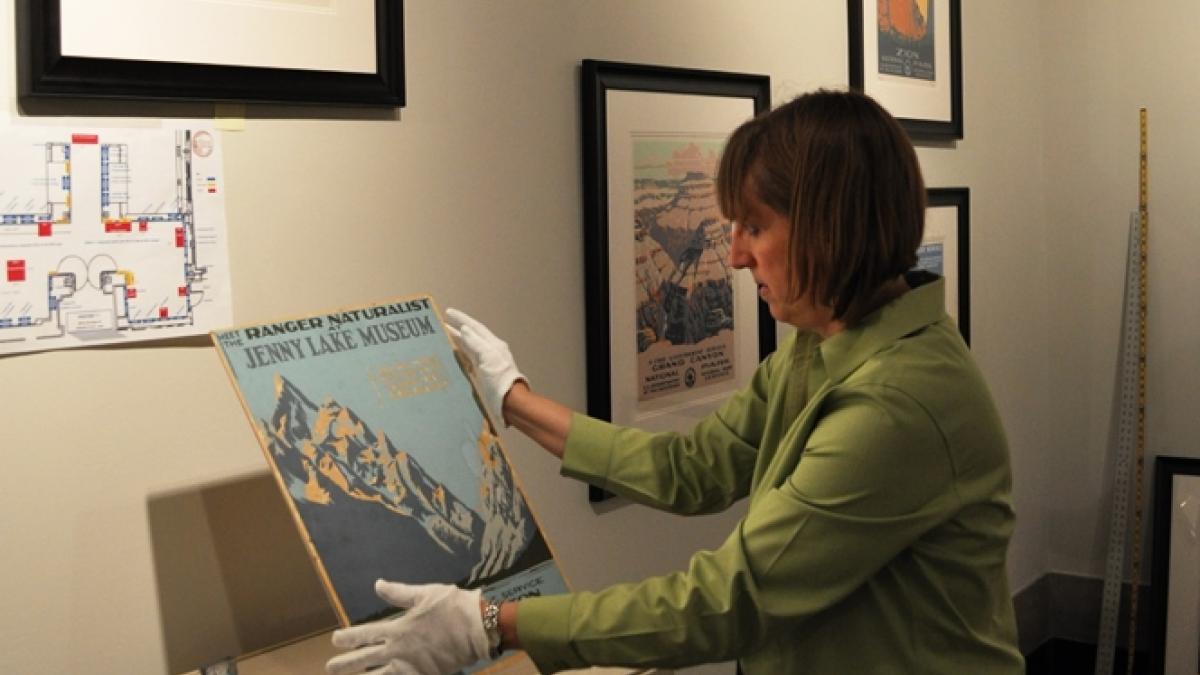
Museum Curator
Position Overview
DOI manages one of the world's largest museum collections for the American people. Museum Curators oversee this amazing collection of over 73 million cultural artifacts and natural history specimens, and an additional 86 thousand linear feet of archives (more than 211 million objects) housed in DOI facilities as well as managed by partner museums and universities. DOI Museum Curators document and preserve these objects, and facilitate use for exhibition and research, helping the public understand and appreciate these important and irreplaceable collections.
This position is represented at the following bureaus
Candidate Description
The ideal candidate is adept at research, and able to analyze, manage and organize information effectively. This person is an active listener, skilled at communicating with others and gaining their cooperation.
Work Environment
Most work is indoors in what are often cooler environments requiring climbing on ladders or carrying boxes, or standard office settings. Some positions may involve outdoor field work.
Minimum Education Requirements
Please see the Individual Occupation Requirements and the Professional and Scientific Positions Group Qualification Standard on the OPM websites.
Career Level Requirements
Responsibilities by Level
Entry:
- Performs routine procedures of managing collections with accessioning, labeling, recording and storing, packing or handling
- Monitoring environmental conditions and security in storage and exhibits
- Performing ICMS/MCMS data entry and records updates for objects and specimens
- Carrying out routine research to locate specific information
- Collecting and summarizing information from source material
- Drafting educational and interpretive products related to collections
- Monitoring user access to collections
Mid:
- Evaluating loan requests and preparing loaned items for shipment
- Researching specimens and artifacts in a collection to identify and authenticate
- Giving presentations and conducting educational tours
- Cataloging, inventorying and maintaining records on collections according to DOI museum collections standards
- Managing collections data in ICMS/MCMS
- Coordinating with various stakeholders including researchers, tribes, and volunteers
- Facilitating user research, exhibits and online access
Journey:
- Preparing planning and management documents
- Initiating acquisition of collections
- Planning and managing environmental control and security systems to preserve and protect collections
- Developing interpretive material for collections
- Developing and monitoring a budget for management of collections
- Publishing papers or original research related to a museum collection
- Proposing and developing exhibition plans
- Representing the museum on task groups working on museum management initiatives
- Maintaining professional competence in one or more disciplines featured in the subject collections and maintaining a basic working knowledge in the other disciplines represented in the collections
Senior:
- Developing and updating agency policy, procedures and guidance for management of museum collections
- Advising on technical issues, trends, and unique situations impacting the management of bureau and DOI museum collections
- Developing, managing, and coordinating all operations for a complex, multi-site unit with cultural artifacts and/or high level of scientific research activity
- Advising regarding permitting for scientific research that involves collecting from federal lands
- Developing presentations, training, and workshops on key policy and management topics at regional, bureau, DOI, inter-agency, national and international levels
- Creating collaborative partnerships and negotiating curation agreements with other agencies and non-governmental organizations
- Preparing, presenting, and publishing papers on museum management principles and methods in professional venues
- Maintaining professional competence in two or more disciplines featured in the subject collections and maintaining a working knowledge of professional standards and current issues for all disciplines represented in the collections
Strengths by Level
-
AccountabilityHolds self and others accountable for measurable high-quality, timely, and cost-effective results. Determines objectives, sets priorities, and delegates work. Accepts responsibility for mistakes. Complies with established control systems and rules.Show Tool TipEntry 5-7Mid 9-11Journey 12-13Senior 14-15
-
Attention to DetailIs thorough when performing work and conscientious about attending to detail.Show Tool TipEntry 5-7Mid 9-11Journey 12-13Senior 14-15
-
Creative ThinkingUses imagination to develop new insights into situations and applies innovative solutions to problems; designs new methods where established methods and procedures are inapplicable or are unavailable.Show Tool TipEntry 5-7Mid 9-11Journey 12-13Senior 14-15
-
Customer ServiceWorks with clients and customers (that is, any individuals who use or receive the services or products that your work unit produces, including the general public, individuals who work in the agency, other agencies, or organizations outside the Government) to assess their needs, provide information or assistance, resolve their problems, or satisfy their expectations; knows about available products and services; is committed to providing quality products and services.Show Tool TipEntry 5-7Mid 9-11Journey 12-13Senior 14-15
-
Decision MakingMakes sound, well-informed, and objective decisions; perceives the impact and implications of decisions; commits to action, even in uncertain situations, to accomplish organizational goals; causes change.Show Tool TipEntry 5-7Mid 9-11Journey 12-13Senior 14-15
-
EntrepreneurshipPositions the organization for future success by identifying new opportunities; builds the organization by developing or improving products or services. Takes calculated risks to accomplish organizational objectives.Show Tool TipEntry 5-7Mid 9-11Journey 12-13Senior 14-15
-
External AwarenessIdentifies and understands economic, political, and social trends that affect the organization.Show Tool TipEntry 5-7Mid 9-11Journey 12-13Senior 14-15
-
FlexibilityIs open to change and new information; adapts behavior or work methods in response to new information, changing conditions, or unexpected obstacles; effectively deals with ambiguity.Show Tool TipEntry 5-7Mid 9-11Journey 12-13Senior 14-15
-
Influencing/NegotiatingPersuades others to accept recommendations, cooperate, or change their behavior; works with others towards an agreement; negotiates to find mutually acceptable solutions.Show Tool TipEntry 5-7Mid 9-11Journey 12-13Senior 14-15
-
Information ManagementIdentifies a need for and knows where or how to gather information; organizes and maintains information or information management systems.Show Tool TipEntry 5-7Mid 9-11Journey 12-13Senior 14-15
-
Interpersonal SkillsTreats others with courtesy, sensitivity, and respect. Considers and responds appropriately to the needs and feelings of different people in different situations.Show Tool TipEntry 5-7Mid 9-11Journey 12-13Senior 14-15
-
Legal, Government, and JurisprudenceKnowledge of laws, legal codes, court procedures, precedents, legal practices and documents, Government regulations, Executive orders, agency rules, Government organization and functions, and the democratic political process.Show Tool TipEntry 5-7Mid 9-11Journey 12-13Senior 14-15
-
Oral CommunicationExpresses information (for example, ideas or facts) to individuals or groups effectively, taking into account the audience and nature of the information (for example, technical, sensitive, controversial); makes clear and convincing oral presentations; listens to others, attends to nonverbal cues, and responds appropriately.Show Tool TipEntry 5-7Mid 9-11Journey 12-13Senior 14-15
-
PartneringDevelops networks and builds alliances; collaborates across boundaries to build strategic relationships and achieve common goals.Show Tool TipEntry 5-7Mid 9-11Journey 12-13Senior 14-15
-
Planning and EvaluatingOrganizes work, sets priorities, and determines resource requirements; determines short- or long-term goals and strategies to achieve them; coordinates with other organizations or parts of the organization to accomplish goals; monitors progress and evaluates outcomes.Show Tool TipEntry 5-7Mid 9-11Journey 12-13Senior 14-15
-
Problem SolvingIdentifies problems; determines accuracy and relevance of information; uses sound judgment to generate and evaluate alternatives, and to make recommendations.Show Tool TipEntry 5-7Mid 9-11Journey 12-13Senior 14-15
-
ReasoningIdentifies rules, principles, or relationships that explain facts, data, or other information; analyzes information and makes correct inferences or draws accurate conclusions.Show Tool TipEntry 5-7Mid 9-11Journey 12-13Senior 14-15
-
TeamworkEncourages and facilitates cooperation, pride, trust, and group identity; fosters commitment and team spirit; works with others to achieve goals.Show Tool TipEntry 5-7Mid 9-11Journey 12-13Senior 14-15
-
Technical CompetenceUses knowledge that is acquired through formal training or extensive on-the-job experience to perform one's job; works with, understands, and evaluates technical information related to the job; advises others on technical issues.Show Tool TipEntry 5-7Mid 9-11Journey 12-13Senior 14-15
-
WritingRecognizes or uses correct English grammar, punctuation, and spelling; communicates information (for example, facts, ideas, or messages) in a succinct and organized manner; produces written information, which may include technical material, that is appropriate for the intended audience.Show Tool TipEntry 5-7Mid 9-11Journey 12-13Senior 14-15
Common Pathways
Candidates who made this career change most commonly held these occupations...
Museum Specialist and Technician
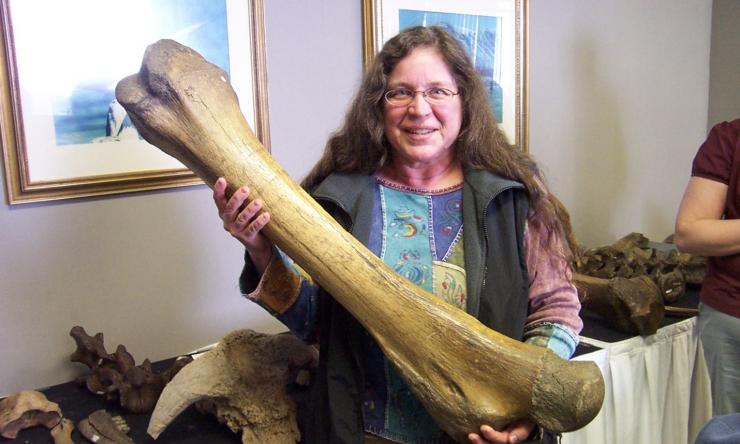
Archivist
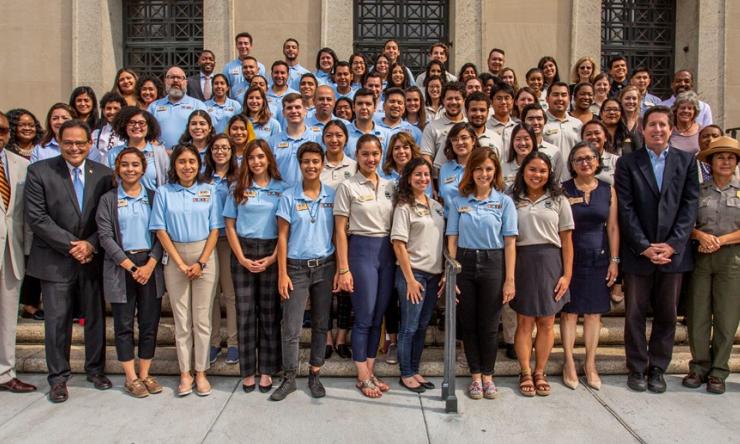
Park Ranger
